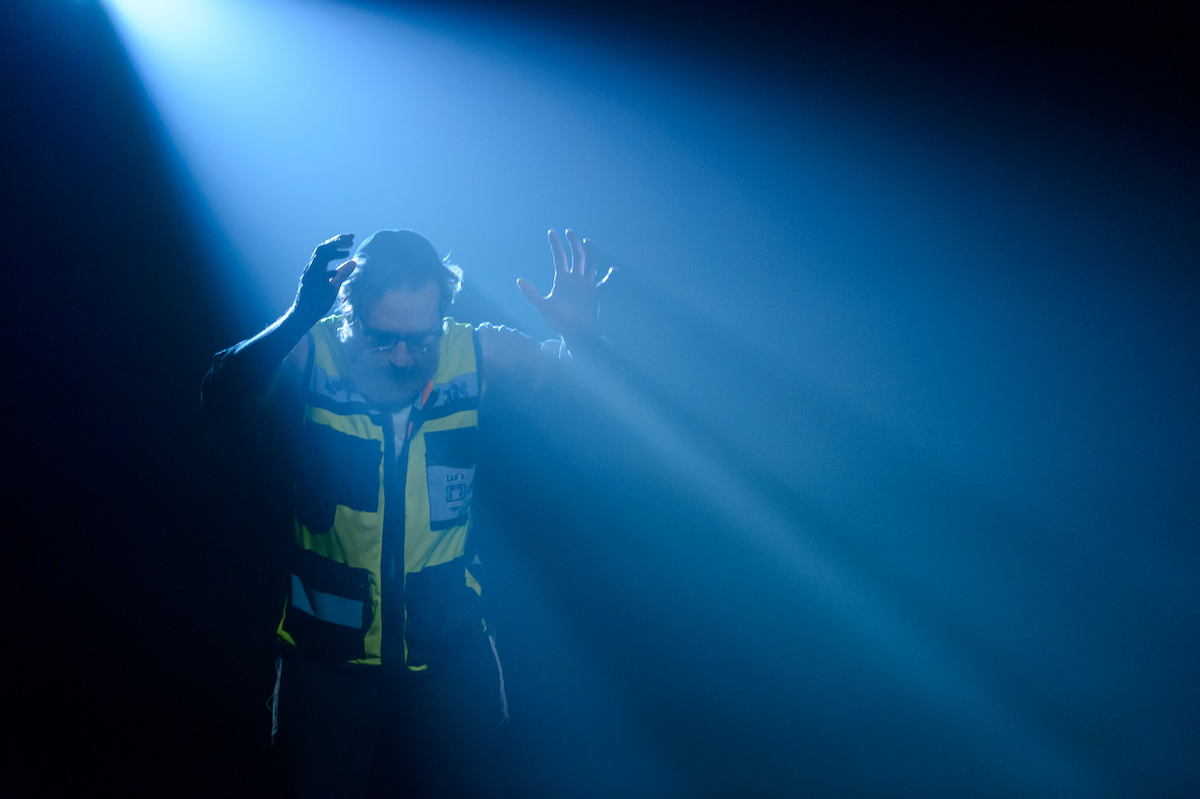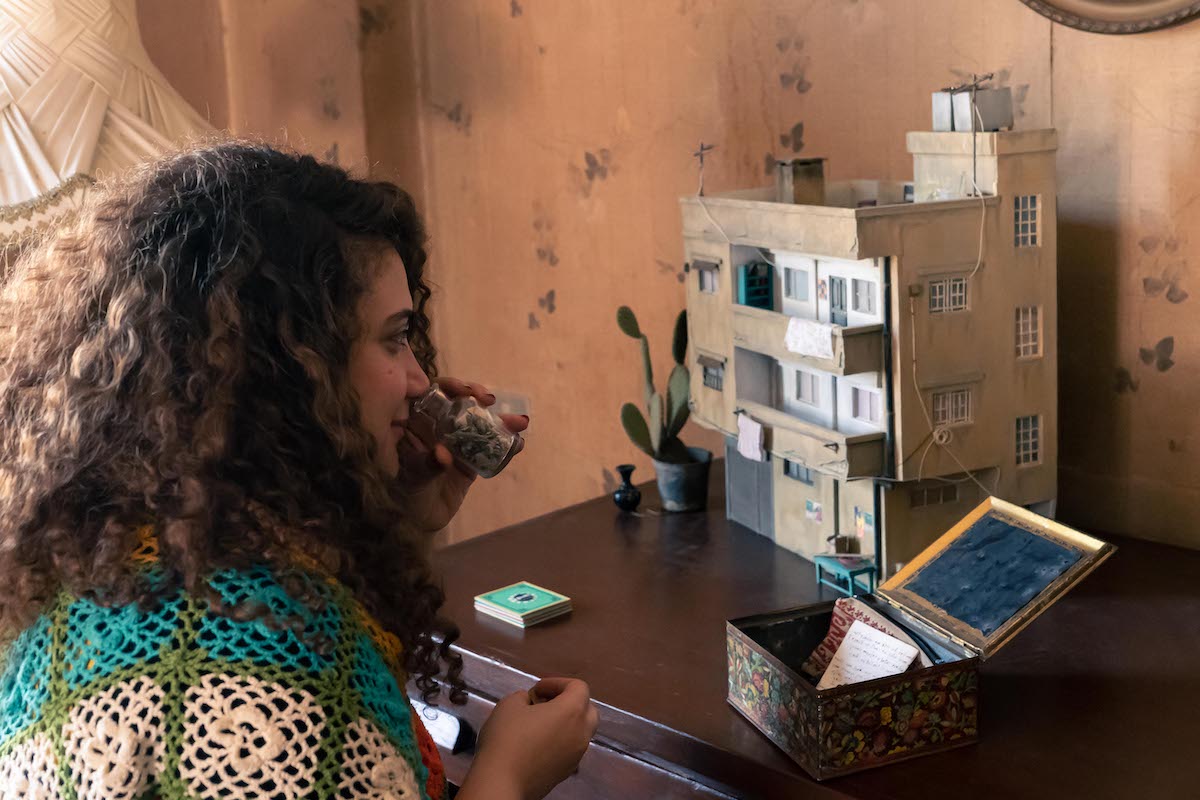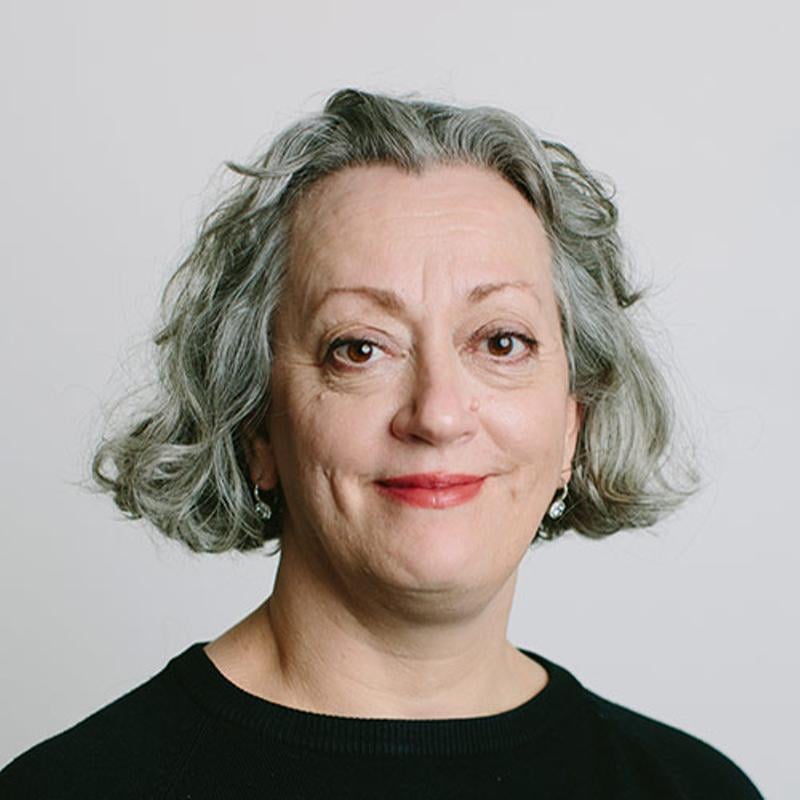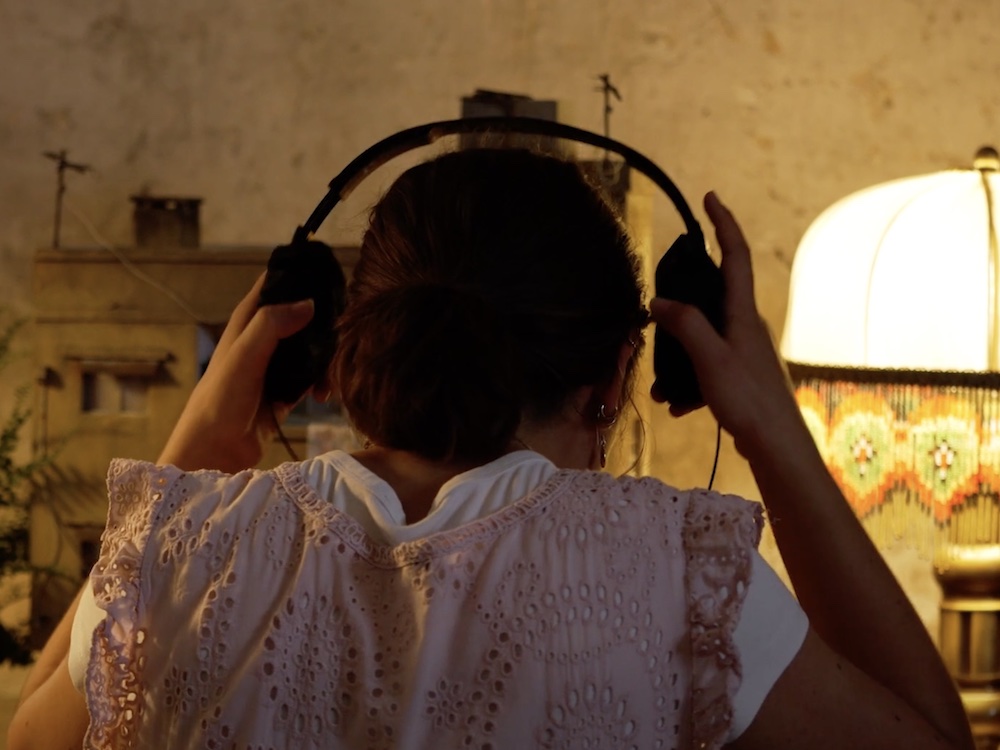What can art offer in times of conflict?
The question arose with startling timeliness when The Runner, a much-awarded production from Toronto playwright Christopher Morris and Human Cargo Theatre company, which follows the story of an Orthodox Jewish man whose life is changed when he provides medical care for a young woman accused of stabbing an Israeli soldier, was cancelled at the Belfry Theatre in Victoria earlier this month. The decision came about after pressure from different community organizations, duelling petitions and a fraught community meeting in December.
In Vancouver, the PuSh International Performing Arts Festival had the production on its 2024 program. But on Jan. 11, the festival announced that the show would not go on.
The announcement was met with backlash and support, with community leaders in both the cultural sector and the wider community taking positions. On social media, ABC Vancouver Coun. Sarah Kirby-Yung stated that she would not attend the festival as a result of The Runner’s cancellation. In an interview with CBC, Vancouver playwright Marcus Youssef was supportive of the transparency and care taken by PuSh Festival staff in explaining the decision. The opinions, for and against and somewhere in between, continue to volley forth.

The divisiveness with how people responded to The Runner’s cancellation spoke to how difficult it is to even talk about the Israel-Hamas war.
It’s an ongoing issue, and one that has personal implications.
Early in my tenure as director of programming for DOXA Documentary Film Festival, I programmed a film entitled Tears of Gaza. Made by a Norwegian filmmaker and a Norwegian and Palestinian film crew during the 2008-09 bombardment of the Gaza Strip by Israel, the film was a brutal picture of a civilian population under attack. The screening was to be followed by a panel discussion with a rabbi and activists working in solidarity with the Palestinian community.
A few days prior to DOXA opening that spring, I received a message on my personal Facebook account using obscene language to threaten both me and DOXA if we decided to go ahead with the screening. It was a nerve-racking experience. To be honest, I was scared. But in conversation with the rest of the festival team, we decided to go on with the screening. To do otherwise would have felt like a capitulation or, worse, a rejection of what the festival was truly about: showing films that demonstrated the fullest scope of human experience. I still remember the overwhelming dread in the pit of my stomach on the day of the event.
Then something unexpected happened. After the screening, people stayed for hours, talking to one another. I think the extended gathering that took place after the screening was, in part, because the intensely harrowing nature of the film placed everyone in the theatre in a shared space of trauma and suffering. People spoke openly about how they felt as well as what they thought might offer a way forward.
Inside the intimate space of the dark theatre, people shared their feelings and ideas — and their grief. The experience was strangely heartening.
The ongoing struggle between speaking out and being silenced reminded me of something that Salman Rushdie said in a message offered at the 2023 British Book Awards after he was stabbed onstage during a public talk at the Chautauqua Institution in New York. Oddly enough, Rushdie’s planned talk at Chautauqua was about the United States as a safe place for exiled writers.
In his first televised speech following the attack, Rushdie clearly stated the need to fight against censorship. “We live in a moment, I think, at which freedom of expression, freedom to publish, has not in my lifetime been under such threat in the countries of the West,” he said in an address that covered not only artistic freedom, but also the idea of rewriting controversial books to reflect changing values.
“Now, I mean, sitting here in the United States, I have to look at the extraordinary attack on libraries and books for children in schools — the attack on the idea of libraries themselves.”
Closer to home, the Vancouver Public Library has contended directly with these issues. During a November 2023 event dedicated to a new book by late NDP leader Ed Broadbent, activists calling for Palestinian solidarity crowded the room, interrupting Premier David Eby’s opening remarks. Things were heated. The former event organizer in me felt a great degree of empathy for how challenging these moments can be. But it was another reminder of the worth of engaging with the complex work of open dialogue.
There is no better place to have these conversations than in the crucible of a theatre. Human beings have used the vessel of art to address the most difficult issues and ideas since the very advent of society. It is an ancient, profound means to find a way forward. The catharsis that emerges from communal experience is a real thing, although it is not easy or comfortable. But if the experience of going through with the screening at DOXA is any indication, something useful, even hopeful, can emerge.
Early last week, before the news broke that PuSh was pulling The Runner from its program, I had a chance to speak with Gabrielle Martin, PuSh’s head of programming. She defended the decision to present The Runner but was also very clear about the challenges of controversial work. Of course, that’s what PuSh is all about: presenting work that pushes the boundaries of the theatrical experience itself, from intimate one-on-one shows to grand-scale epics like the Holy Body Tattoo’s Monumental, presented with the post-rock band Godspeed You! Black Emperor. In normal times, this wouldn’t seem to be much of an issue, but these don’t really feel like normal times.
When we spoke, Martin was forthcoming about the process of taking feedback from the community. “We’re continuing to listen, reaching out, reading email, taking time to reflect on conversations.” But as she rightly says, “there are multiple truths.”
The right to protest is something of which Martin is keenly aware. She notes that PuSh is dedicated to presenting work “that is masterful in form and transformative, that offers new perspective, catharsis and communion.”
PuSh is certainly not alone in contending with the difficulty in presenting work in a moment of profound division. In fall 2023, International Documentary Film Festival Amsterdam, or IDFA, struggled through something similar. A number of filmmakers withdrew their work from the festival as an act of Palestinian solidarity.
During the festival’s opening-night screening, protesters from the organization Workers for Palestine took the stage to unfurl a banner and call for a ceasefire. Festival director Orwa Nyrabia applauded the act but was immediately called out for seemingly taking a political position, though he later clarified that his intent was to indicate support for free speech.
In a followup statement addressed to the documentary community as a whole, IDFA reiterated its beliefs, expressing above the festival’s commitment to open dialogue:
We stand behind all the documentary filmmakers of the world, and behind all the films shown, discussed and awarded at IDFA over the years.These are films that stand against injustice, that defend a better world, a world without occupation, without colonialism, without segregation, without war. These films told us repeatedly that violence breeds violence.
That these cycles of destruction cannot be broken without acknowledging that we are all equal, that all lives are sacred, and that the ability to engage in serious dialogue is the only path we know towards sustainable peace, no matter how difficult it gets.
Whether or not you agree with the PuSh Festival decision to pull The Runner from its 2024 program, it is painful for everyone involved. It is an impossible position for any arts organization to be in, but arts workers are being called to do increasingly complex work.
In their statement, PuSh Festival organizers were transparent about how they came to their decision, citing the fact that artist Basel Zaraa did not feel he could have his work Dear Laila presented alongside The Runner.
Zaraa outlined his concerns in language that was clear and resolute:
Dear Laila is an installation I created for my young daughter, which tells the story of our family’s ongoing trauma and struggle as Palestinians exiled by Israel, starting with the massacre in our village of Tantura in Palestine, in 1948.As Israel’s genocide in Gaza continues, I cannot agree for Dear Laila to be shown alongside The Runner, a play which reinforces dehumanizing narratives about Palestinians. Palestinians appear in The Runner almost exclusively as perpetrators of violence.
While the Israeli characters are vividly portrayed, the Palestinian characters don't even have names, and barely speak.
The fundamental context of Israel’s occupation, apartheid and ethnic cleansing of the Palestinian people is not given. This is not a war between two sides, but a decades-long effort by Israel to control and erase our people.
While many voices are welcome, artistic endeavours on this subject have a responsibility to reflect the reality that there is an occupier and an occupied.
The Runner playwright Christopher Morris’s words, included in the PuSh statement, are also important:
If removing The Runner is the only way Canadians can hear Basel’s crucial voice, then there is value in stepping aside.I am deeply saddened by humankind’s capacity to wage war. We’re living in troubled times and the impact of the war in Gaza and Israel is profoundly felt in Canada.
It’s unsettling when Canadian theatres cannot be a space for the public to engage in a dynamic exchange of ideas.
I believe theatre must be a place where contrasting perspectives are programmed and celebrated. Now more than ever, we need to listen to each other, engage in different viewpoints, and find our shared humanity.
I appreciate the generosity of spirit from Morris, who stated that he did not want people to miss having the opportunity to see Dear Laila in the festival.

In reading a transcript of an interview that PuSh’s Martin conducted with playwright Morris earlier in the fall, the possibility of something good and hopeful emerging from this kind of direct engagement emerges.
As Morris explains: “I’m not necessarily pessimistic about human nature. I feel if I think of the bad stuff that we do as people, I just feel I’m more sobered by it. I’m not like, depressed, just more sobered. But what I get more enjoyment from is the extraordinary things that people do to pursue a better way of life.... I believe they can engender people to do the most extraordinary things. And that’s exciting to me.”
The show goes on, and PuSh will continue. There are many remarkable offerings to take in when the festival starts this Thursday, but the intractable difficulty remains.
I understand why the decision was made to remove The Runner. Mostly I just feel terrible for everyone involved. Art should bring us together, not further divide us.
One of the most important things that art can do is offer multiple ways of contending and grappling with an issue. It doesn’t offer easy answers. But it holds space for ongoing engagement with multiple truths, and the hard work of empathy and understanding. ![]()

















Tyee Commenting Guidelines
Comments that violate guidelines risk being deleted, and violations may result in a temporary or permanent user ban. Maintain the spirit of good conversation to stay in the discussion and be patient with moderators. Comments are reviewed regularly but not in real time.
Do:
Do not: